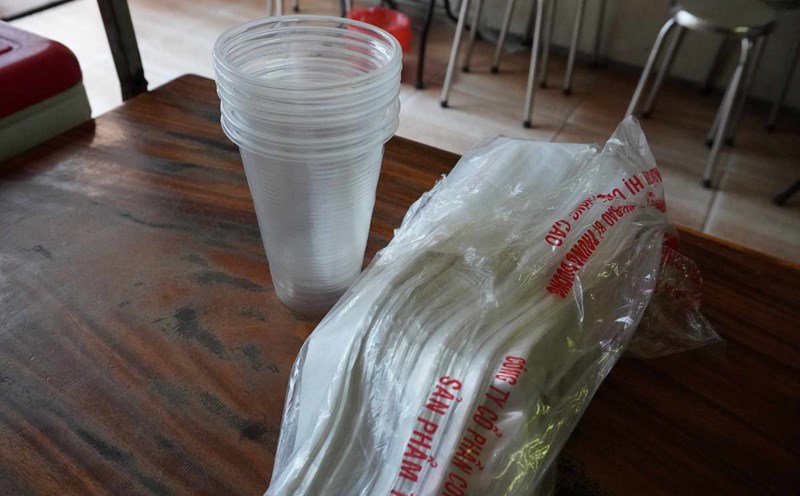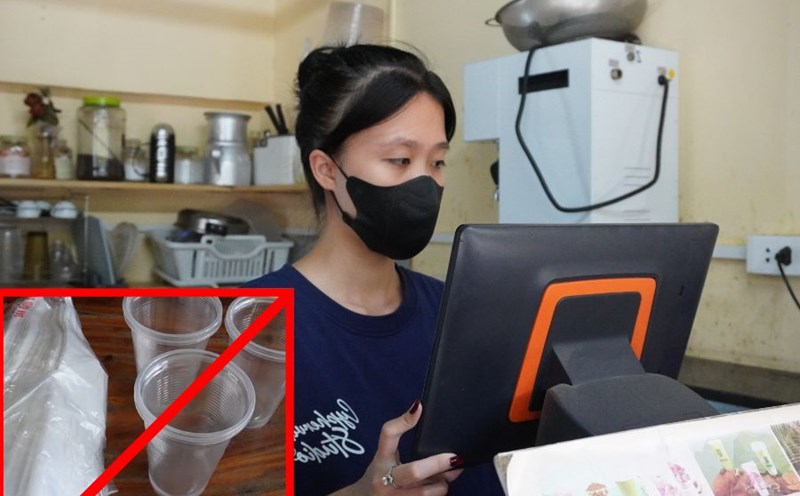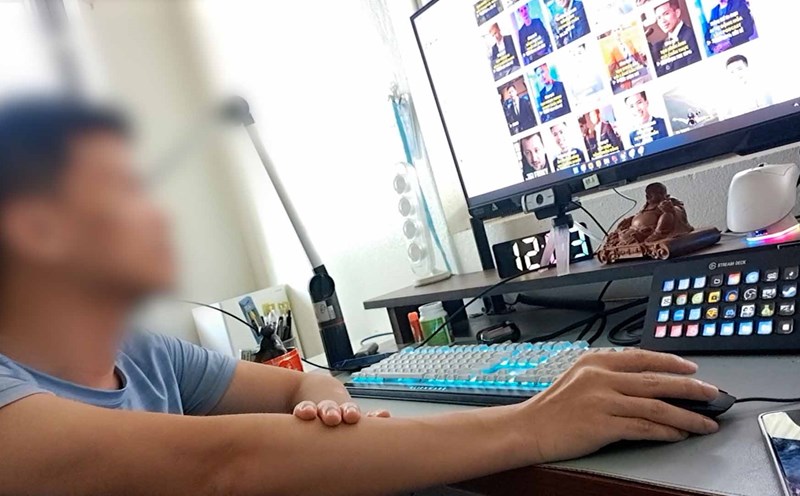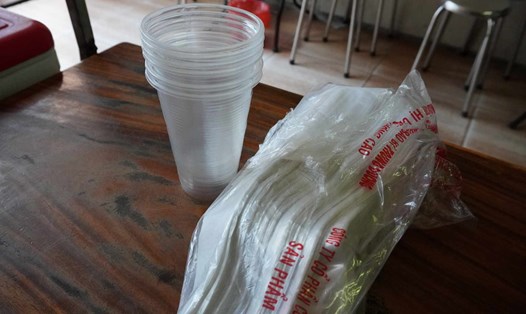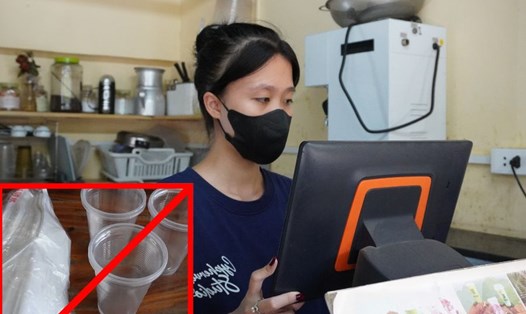Piloting a ban on single-use plastic: Clear instructions are needed
To achieve the goal of reducing plastic waste, Hanoi City will pilot the non-use of disposable plastic products at restaurants, eateries, coffee shops and beverage stores located in the Ring Road 1 area, starting from the fourth quarter of 2025.
This is one of the urgent tasks clearly stated by the Prime Minister in Directive No. 20, issued on July 12 to prevent and solve environmental pollution.
Dr. Hoang Duong Tung - Vietnam Association for Conservation of Nature and Environment - said that the harmful effects of plastic waste have been warned for many years and the level of harm to the environment and oceans is something everyone can clearly see.
According to him, the reduction and pilot ban on some types of single-use plastic in restaurants, eateries, cafes and beverage stores located in the Ring Road 1 area shows Hanoi's determination to reduce environmental pollution - from soil, water, air to waste, especially plastic waste.
Currently, Hanoi uses a large amount of plastic products. It cannot be denied that plastic has many uses in life and production, but many types of disposable plastic such as plastic bags in traditional markets, some items in hotels, straws, thin plastic cups... the rate of recycling and reusing is very low, most of which are discharged into the environment and washed into the sea. Many studies have shown that microplastics leave serious consequences for human health.
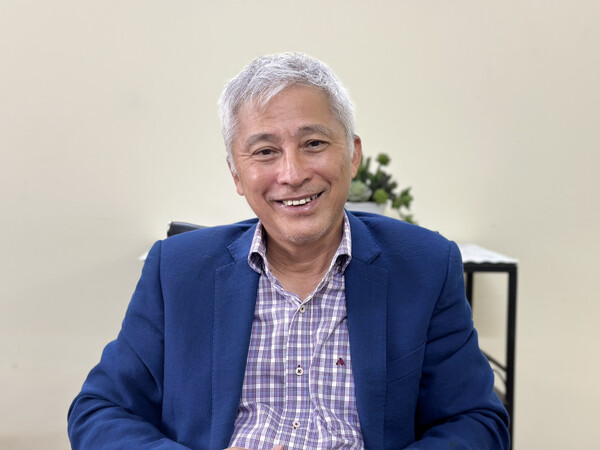
Dr. Hoang Duong Tung commented that the biggest barrier is changing consumer behavior and conversion costs for businesses. Although Vietnam has applied environmental protection tax to non-biodegradable plastic bags, the implementation is not complete, many production facilities are not affected, causing plastic bags to still be rampant in traditional markets. Therefore, along with the ban, Hanoi needs to strengthen supervision, inspection, and examination, while publicly and transparently announcing the implementation results.
Another challenge comes from the strong development of e-commerce and transportation, causing the demand for plastic bags to increase. Hanoi needs to set the criteria for "green transportation", requiring logistics enterprises to use recycled and reusable packaging. Many countries such as Thailand, Malaysia, Singapore, and China have effectively implemented, applying economic tools such as taxes, encouraging businesses to produce alternative products, and at the same time issuing a "green transportation" index. These are experiences that Hanoi can refer to.
Dr. Hoang Duong Tung affirmed that the feasibility of the policy depends on how it is implemented. If there is a systematic plan, implemented on a small scale, learned from experience and then replicated, it can be completely successful. The important thing is to have specific assessment indicators, detailed plans, clearly define responsibilities, avoid the situation of making big policies but lacking accompanying measures.
People generally support it, but need to be clearly instructed: what is disposable plastic, what types are banned, what types are allowed to be replaced. Propaganda needs to be widely implemented through community communication channels and digital platforms, helping people understand the harmful effects of plastic and know how to choose the right product. Not only people, but also businesses and management agencies must receive specific instructions, and at the same time have tools to measure the results and evaluate the level of plastic waste reduction.
For the policy to be truly feasible, there needs to be specific alternatives
Dr. Bui Thi An - former National Assembly Delegate of the 13th tenure, Director of the Institute of Natural Resources, Environment and Community Development - commented that plastic and foam are materials that are difficult to decompose, if not thoroughly treated but allowed to remain in the soil for a long time, it will cause serious consequences and environmental pollution. Therefore, banning the use of plastic at once in Ring Road 1 will bring great benefits to the capital's environment as well as public health.
For the policy to be truly feasible, there needs to be a specific alternative solution. Currently, there is no complete survey on the cost and quality of single-use plastic replacement products. Meanwhile, the pilot implementation time is approaching, so the survey and assessment must be conducted immediately. If the source of replacement products does not meet the requirements, the city needs to take additional measures and provide timely support to make it easier for people to access, avoiding the situation where regulations are issued but difficult to put into practice.
To quickly put the policy into practice, she proposed that the city issue a clear support mechanism. It is necessary to create conditions for businesses producing environmentally friendly materials through tax and credit policies so that they can maintain and develop.
In addition, it is advisable to support initial selling prices for people, while encouraging points of sale and distribution systems to expand the supply of alternative products to make access more convenient. New materials also need to be improved to ensure convenience, durability, lightness and suitability with consumption habits. Only when people feel comfortable and convenient in the transition process will the policy be effective.
On September 19, Lao Dong Newspaper organized the Workers' Forum for the Environment 2025. The forum was attended by managers, scientists and a large number of workers - those who directly work in collecting and treating domestic solid waste to work at the same table and propose solutions to help environmental protection and waste management work be synchronous and effective.
The forum is also a voice accompanying each occupational hygiene worker, each locality to continue to promote the protection of the air and water environment, promote waste classification, turn waste into resources, build models for urban and rural waste management and treatment to meet the requirements in the new situation.

